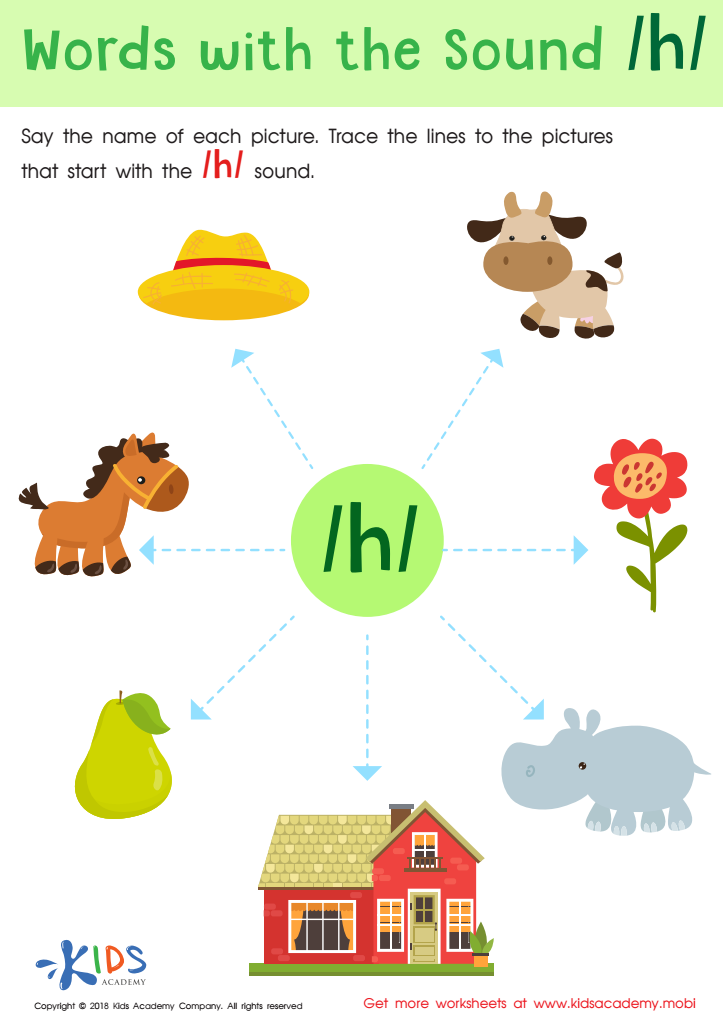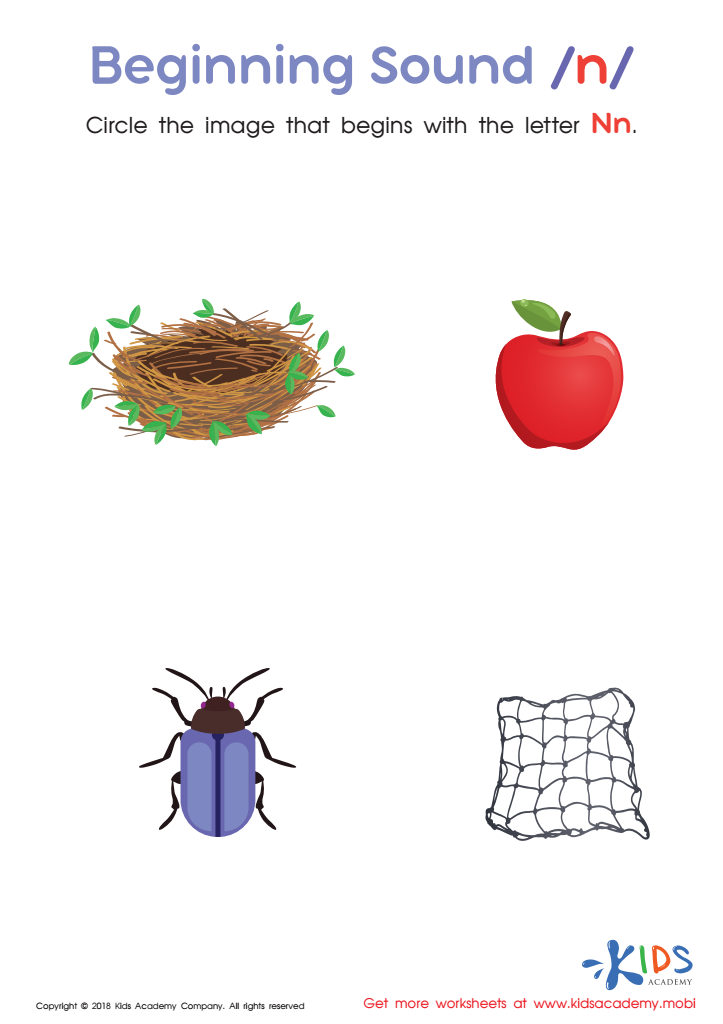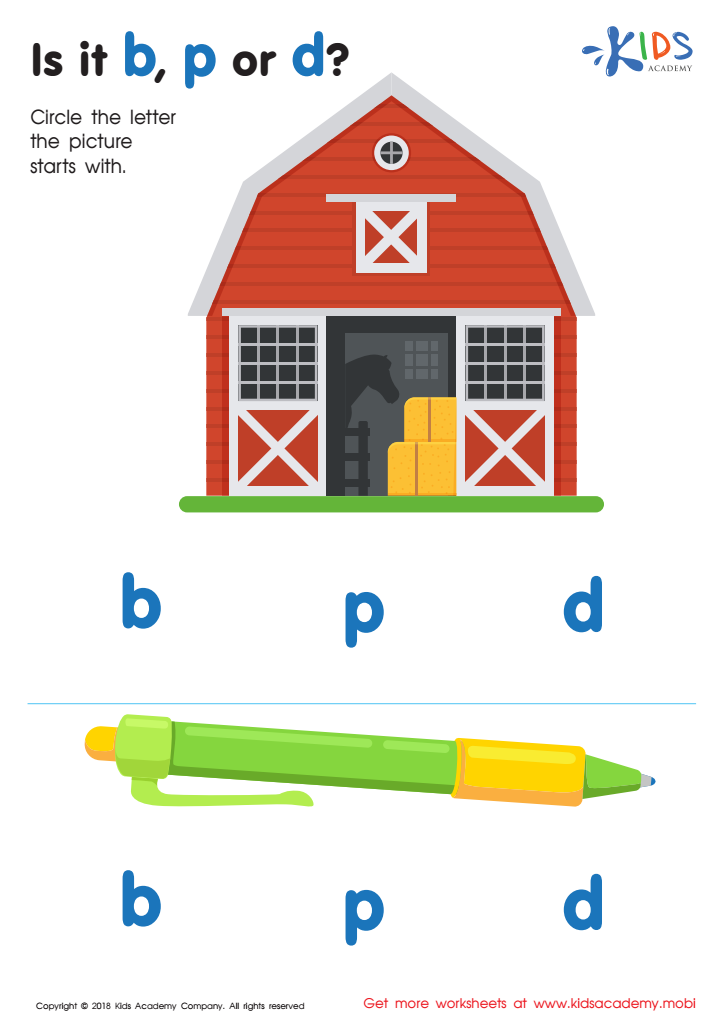Letter recognition Beginning Sounds Worksheets for Ages 6-7
3 filtered results
-
From - To
Welcome to our "Letter Recognition Beginning Sounds Worksheets" designed specifically for children ages 6-7! These engaging worksheets provide a fun and interactive way for young learners to enhance their letter recognition skills. By focusing on beginning sounds, children will develop a strong foundation in phonics, enabling them to identify letters and sounds quicker. Our carefully crafted exercises incorporate vibrant images and engaging activities that promote both learning and creativity. Perfect for classroom use or home practice, these worksheets support early literacy development, ensuring kids are ready to embark on their reading journey with confidence. Explore and help your child master letter sounds today!


Words with sound h Reading Worksheet


Beginning Sound «n» Worksheet


Is it b, p or d? Worksheet
Letter recognition and beginning sounds are crucial aspects of early literacy for children aged 6-7, laying the foundational skills for reading and writing. At this age, children are transitioning from learning individual letters to understanding how those letters combine to form words. Letter recognition helps children identify and differentiate between various letters, which is essential for decoding text.
Understanding beginning sounds allows children to focus on phonemic awareness, the ability to hear, identify, and manipulate the individual sounds in spoken words. This skill is vital for phonics instruction, enabling children to decode unfamiliar words when reading. Moreover, recognizing the initial sounds enhances spelling abilities, aiding in writing proficiency.
Parents and teachers should prioritize these skills because they are closely linked to overall literacy development. Mastery of letter recognition and beginning sounds promotes confidence in reading and writing, as children can apply their skills to tackle texts independently. Furthermore, supporting children in this critical period fosters a positive attitude towards learning, encouraging a lifelong love of reading. By engaging with children in activities that enhance these skills, adults play a key role in their academic success and help set the stage for future literacy achievements.
 Assign to My Students
Assign to My Students


















